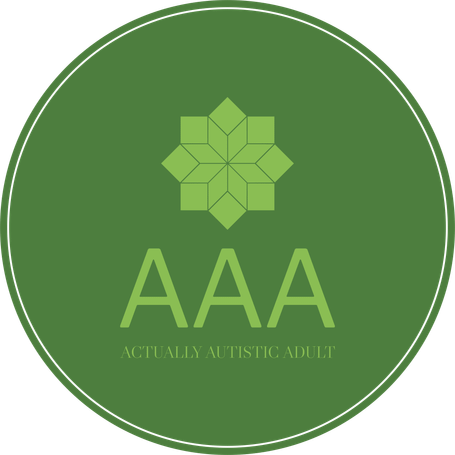The different between belonging and fitting in
Written in March 2023
This is a really important distinction for neurodivergent people, because for us (especially the late diagnosed among us) we will spend our lifetime attempting to fit in, and having to fit in for survival, but we may not feel like we belong anywhere. We'll often feel like this until we find our community; even then some people don't have a positive experience with the community (but that is a different post for another day).
We have to fit in for survival, and this can look like fitting in to a workplace so we can earn money to pay for accommodation, in order that we can fit into society. If we don't work then we have to fit in to the requirements of the DWP in order to survive (and that's another post for another day). This fitting in allows us to buy food and clothing and all the other things we need for survival as humans. And we have to do all this in the face of pockets of society that can't accept us as humans because we're not the same as them.
We may have to suppress our instincts, suppress our reactions and rely on scripts to fit in when we're buying food, or using public transport, or working, or attending a cultural event, or just simply going for a walk where other people are likely to be. All of this takes work – fitting in is a job in itself.
Belonging is something that doesn't demand effort. Belonging is having the experience of fitting in, of being accepted, without having to mask, or change behaviours, or pretend we're someone else. Belonging is also something you can experience when you're alone; belonging is knowing you're part of something and somewhere. Fitting in is more of an activity that you do when you have to (when you're around people). I can feel a sense of belonging when I'm on my own, with a simultaneous gratitude for respite from having to try and fit in, because I'm on my own.
I was speaking with a member of a volunteering group I belong to* who disclosed that they were also neurodivergent. They'd experienced bullying at school, and didn't feel like they fitted in at school, or really anywhere until they were older. Now, they said, they can fit in anywhere, but are much happier when directing their own time and activities. I want to speak to them more about where they feel they belong, because although we didn't directly address the theme of belonging I got the impression from the rest of our conversation that they feel a little similar to me, a sense of belonging to different communities that address different aspects of our personalities, but where that whole personality is accepted.
In a more philosophical sense, I realise that part of my sense of belonging stems from self-acceptance – I feel like I belong in and of myself. I don't think I'd feel able to belong anywhere if I hadn't accepted myself as I am; I had to stop trying to fit in absolutely everywhere before I could do that, and I think that really shows the antithetical of the notions of fitting in versus belonging.
*I do feel like I belong there, because even though I may have to suppress my natural urge to swear more than may be comfortable for other members of the group, I am still accepted as I am. Suppressing that part of my personality isn't me hiding it, because I do swear in front of some members who don't mind it, but I am mindful of the comfort of the rest of that community.
Solène also left us with the Platinum Rule – Treat others as they want to be treated, and moderating my language is part of that.
We need your consent to load the translations
We use a third-party service to translate the website content that may collect data about your activity. Please review the details in the privacy policy and accept the service to view the translations.
